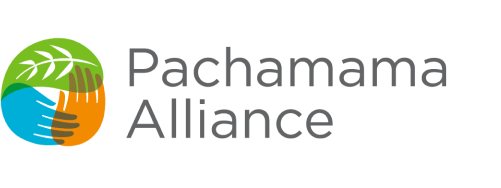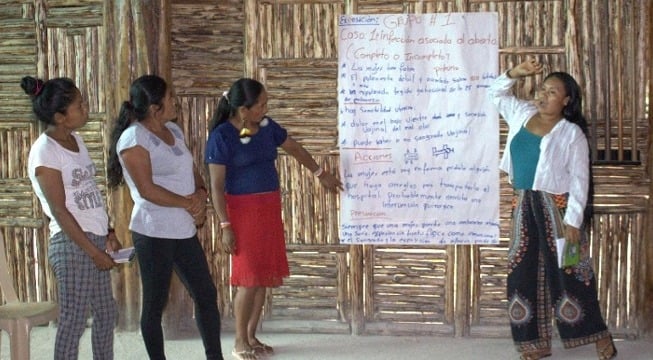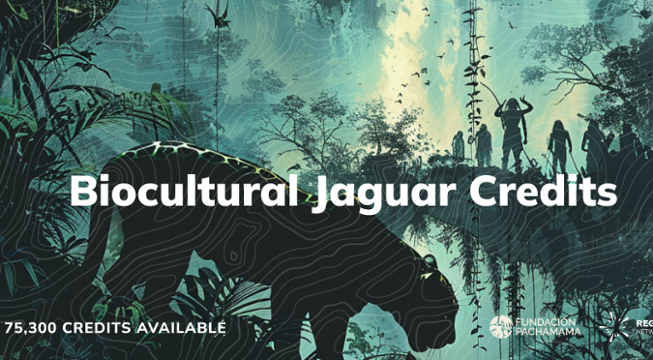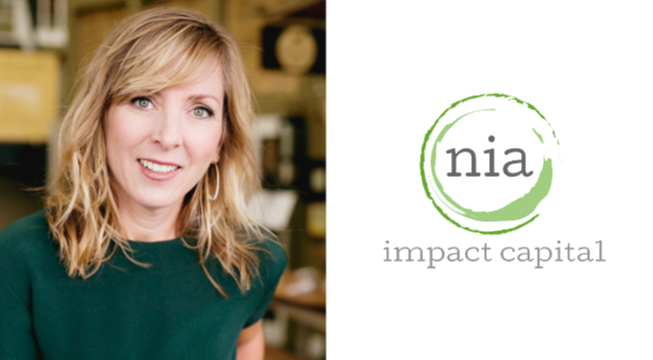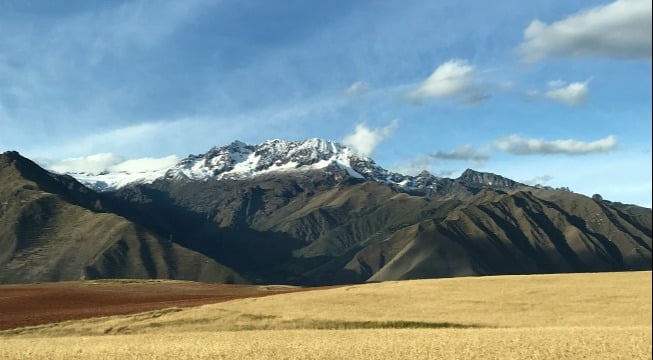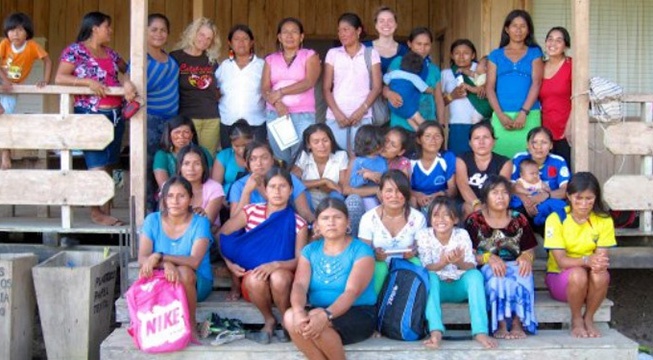
Imagine for a moment that you live deep within the Amazon rainforest, in a community so within the forest that the only way you can leave your community to go into the city is to either charter a small Cessna airplane (for a high price), or walk ten days through treacherous mud, creeks, and forge river crossings. In addition, you have a husband and 8 children, between the ages of 1 and 12, to whom you must provide all of the daily food and sustenance. In order to provide this food, you must wake up before dawn to prepare the daily hot tea, guayusa, used to provide strength and vitality and serves as a guide in dream interpretation. Following drinking guayusa with your family, you must also prepare chicha, a fermented manioc beverage that sustains you and your family, in addition to breakfast. In order to do all of this, you must first cultivate and clean your garden, where all of the staples of your family’s diet come from. You must take care of the animals that your family might have; perhaps cows and/or chickens. This is the daily life and work of an Achuar woman. She is the protector and the nurturer of her garden, her family, and therefore community.
Recognizing the Importance to Attend
Now, imagine what it takes to leave your family and responsibilities behind for a week in order to attend a workshop in a community far away from your loved ones and normal reality. For many women and families, leaving behind such responsibilities is impossible. However, many Achuar men recognize how important it is for Achuar women to learn and be trained in the ways of prevention and early recognition of danger signs in pregnancy and birth. It is these men and communities, with their wives, who see the importance of having a trained maternal and neonatal health promoter within their community to be able to save lives. So it is together, through the partnership with and support of their husbands, that 20 women from 8 different communities in Morona-Santiago and Pastaza made it to the “Maternal and Neonatal Health Promoter training for community empowerment” workshop in the community of Sharamentsa just this past July.
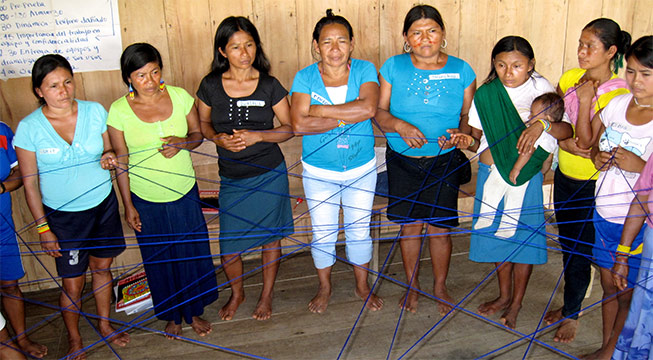
Participants learning about the network of safety: when we, as a community, work together in support of the mother and her family, the network of safety is sustained. Photo credit: Robin Fink
In this workshop, 20 Achuar women (16 new participants, 4 participants from previous workshops) were trained in all of the theories and practices of being able to provide prenatal care, conduct prenatal visits, recognize early warning signs in pregnancy, how to communicate effectively within the communities, the importance of confidentiality and quality of care, how to keep a birth record, coordinate for emergency evacuations to the nearest hospital, and in safe birth. The workshop facilitation team consisted of two certified and professional midwives, from the US and Ecuador, respectively, an anthropologist, two Achuar Master Trainers, and two Achuar Master Trainers in-training.
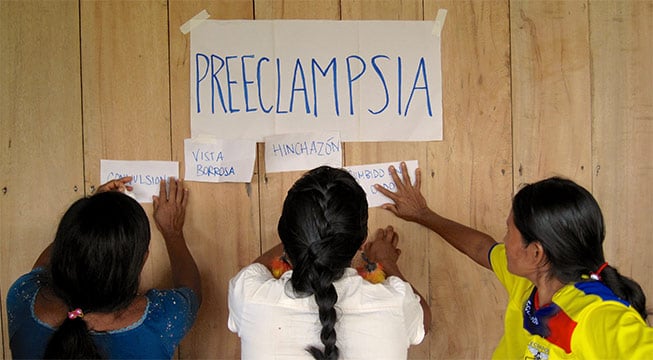
In this 7 day workshop, women learned how to calculate vital signs such as: blood pressure, pulse, temperature, in addition to calculating expected date of delivery, fundal uterine height. They also learned how to and practiced attending a clean and safe birth using clean delivery kits, how to recognize danger signs and symptoms in pregnancy, and in the case of a post-partum hemorrhage, what to do immediately on the scene and how to evacuate to the nearest hospital. Each participant received a backpack with materials needed to conduct these visits, and 50 birth kits were distributed to these women to distribute to pregnant women living in their communities. In neonatal care, they learned how to resuscitate a newborn baby that doesn’t breathe well and what the warning signs of a sick newborn are.
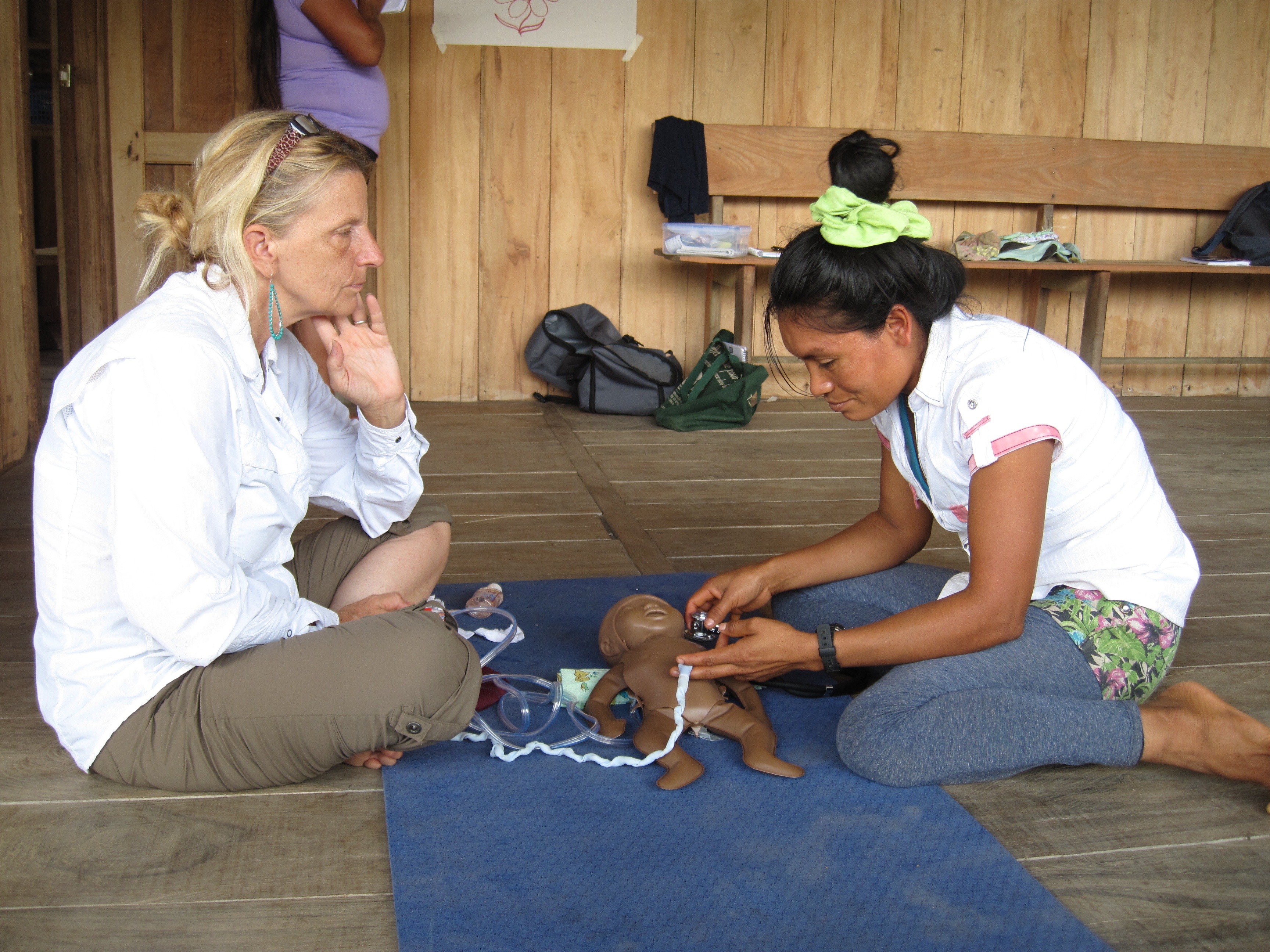
A workshop participant practices neonatal resuscitation with midwife and workshop facilitator, Diane Holzer using a Laerdal NeoNatalie simulator. Photo credit: Robin Fink
In this workshop, the various methods and their effectiveness of family planning were discussed. When we address family planning, we address it from the perspective that by spacing children further apart, families can work to improve the quality of health for Achuar women, as it is very common for women to have children one after the other, thus increasing risk of health problems such as anemia, malnutrition, and post-partum hemorrhage. By providing the information about the various methods of contraception available to women in Ecuador, Jungle Mamas places the tools of knowledge and empowerment into the hands of the maternal health promoters and families to dialogue and discuss among themselves how they want to plan their families. Out of respect for the autonomy of the Achuar people and their culture, Jungle Mamas does not distribute contraceptives.
The reality for the Achuar is so far located from easy access to professional health care, that because of a lack of resources, failed communication channels, and weather alone, there is very little to no chance of evacuation. The objective of this workshop was to work with these women so they could easily recognize danger signs early on and coordinate with their communities so that evacuation is possible and the lives of mothers and their babies are therefore saved.
Sharing Experiences with Other Women
For many of these women, this was the first time they had ever been away from their families and able to commiserate and be with other women, actively sharing their experiences, knowledge, wisdom with each other. It was the first time anyone had given them space to come together and discuss the issues facing women and their families within their communities and to create empowered solutions through a network of safety generated around mothers and families. The concept and model of the network of safety was coined by the work of One Heart World-Wide, who have partnered with Jungle Mamas in order to more effectively take the program to scale and increase the positive impact on Achuar families. Jungle Mamas workshops always highlight the importance of collective solidarity in recognizing that the health and well-being of women is a concern not only of other women, but the whole community at large.
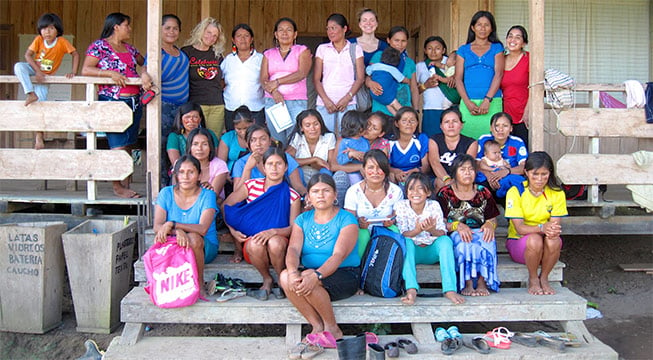
All of our workshop participants and facilitation team in Sharamentsa. Photo credit: Robin Fink
Since 2013, we have trained 42 Achuar women from the provinces of Morona-Santiago and Pastaza as community maternal and neonatal health promoters. These women are actively serving as the eyes, ears, and saving hands of their communities and communities around them, in effort to prevent and respond to danger signs in pregnancy and birth. They are the new leaders of their communities working to ensure the health and well-being of Achuar mothers, babies, and therefore communities.
